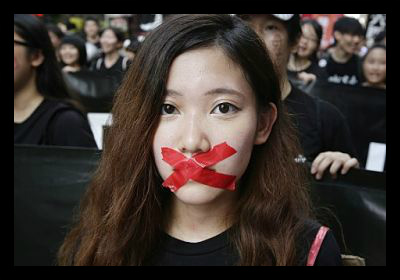Hong Kong Citizens Protest Chinese Control

Thousands of Hong Kong citizens are protesting the ever-tightening grip of Chinese control over the city. While some of the anger stems from China’s influence regarding Hong Kong’s media and politics, the main issue of the demonstration is in regards to the economic changes and the belief that, in the 17 years since Hong Kong was given back to China, wealth inequality and economic opportunity have not improved.
Currently, around two million people live in public housing, which is about 30 percent of Hong Kong’s population, and one-fifth of the population lives below the poverty line. According to Hong Kong’s government, poverty is only getting worse. The poverty gap increased to $28.8 billion in 2012, compared with $25.4 billion in 2009. Worse, its income inequality is the 12th highest in the world.
“It’s not like the 70’s and 80’s where we know our salary is going up next year or we’ll get a promotion,” said Li Kui-Wai, an economics professor at the City University of Hong Kong. “Our economy is not as good as [it] used to be.”
However, economists and Hong Kong’s government do not agree with the notion that China has anything to do with the economic disparity facing Hong Kong. The government believes that the immigration of low-skilled workers into the city along with an aging population are the reasons for economic woe. The government has pointed out that unemployment has remained low, at around 3.1 percent, which is the lowest it’s been since the late 90’s. Additionally, they argue that their trade relationship with China is vital.
Despite assurances from economists and the government, the citizens of Hong Kong believe that China is the influence behind the economic problems. The sight of well-to-do Chinese people entering the city every day to buy luxury items hasn’t helped the government’s case. Additionally, many Chinese give birth to their children in Hong Kong so that they will be granted Hong Kong citizenship; consequently, this limits the stock of baby formula available. In addition, a proposal to turn a plot of northern Hong Kong into luxury and retail space, which would remove 6,000 farmers and villagers from their homes, is not easing tensions, either.
Even the wealthy are drawn into the debate, as the wealthiest man in Asia recently stated that the widening income gap and dissolving trust in the government will become the sentiment of the majority.
Over 700,000 people voted in an unofficial referendum to not allow China to continue to control their elections.
“Part of the reason for the activism in the city is the sense that many of the young people feel that the system is unfair, that it is skewed to helping the rich,” said David Zweig, a political science professor at the Hong Kong University of Science and Technology.
Many Hong Kong citizens have joined a group called Occupy Central, their version of Occupy Wall Street, to speak out against the wealth inequality, pay gap and limited job opportunities.
– Monica Newell
Sources: Quartz, Bloomberg
Photo: Fiji One
